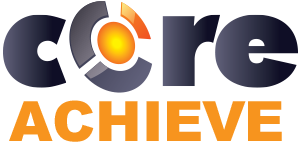Accelerating Sales Performance with an LMS
May, 26 2023
Other posts:
Enhancing Team Dynamics for Effective Group Decision-Making with LMS Integration
Organizations increasingly rely on collaborative efforts to solve complex problems, innovate, and adapt to change, but how do we ensure that collaboration is happening.
Maximizing Small Business Potential with Training Technology
Training technologies can push small businesses ahead of their competitors, but what are the factors that go into choosing the right technology?
Unlocking Employee Potential: The Transformative Benefits of an Interactive Learning Management System (LMS)
Interactive training allows for unlocking employee potential, but how is it done?
Building a Robust Sales Pipeline with Training
Every organization wants a streamlined sales pipeline, but building one requires a series of interlocking activities with one of the most important being training.
Strategies for Adapting In-Person Training to Online Platforms
Online training is one of the most flexible ways of delivering training across organizations, but how do you even begin to adapt in-person training into online?
Want your organization drive better sales? It would be wild to say no, but organizations can run into roadblocks and periods of slow growth. An LMS can help.
In today's competitive business landscape, effective sales training is crucial for commercial organizations to drive revenue growth and stay ahead of the competition. The traditional approach of classroom-based training is no longer sufficient to equip sales teams with the necessary skills and knowledge to succeed. This is where an Learning Management System (LMS) comes in. In this blog post, we will explore the role of an LMS in revolutionizing sales training for commercial organizations, and how it can accelerate performance, empower sales teams, and drive tangible business results.
Comprehensive Sales Training Programs
An LMS provides a centralized platform for designing and delivering comprehensive sales training programs. Commercial organizations can create and curate a diverse range of learning content, including product knowledge, sales techniques, objection handling, and customer service skills. With the flexibility of an LMS, training programs can be tailored to meet the specific needs of different sales roles, regions, or target markets. This ensures that sales teams are equipped with the right skills and knowledge to effectively engage customers, close deals, and drive business growth.
Access to On-Demand Resources
An LMS enables sales professionals to access training resources anytime, anywhere. Through a cloud-based platform, sales teams can conveniently access on-demand training materials, such as videos, interactive modules, job aids, and sales playbooks. This accessibility empowers sales reps to learn at their own pace and revisit key concepts as needed, ensuring continuous skill development and knowledge retention. The availability of just-in-time resources also supports sales enablement by providing quick access to the latest product information, competitive insights, and sales collateral, enabling sales reps to deliver compelling pitches and effectively address customer needs.
Tracking Learner Progress and Performance
One of the significant advantages of an LMS is the ability to track learner progress and performance. Sales managers and training administrators can monitor individual and team-level performance metrics, such as completion rates, quiz scores, and sales performance data. This visibility allows for targeted coaching and intervention, identifying areas for improvement and providing personalized support to enhance sales skills. By tracking learner progress, organizations can measure the effectiveness of their sales training programs, make data-driven decisions, and continuously refine their training strategies to drive better outcomes.
Driving Sales Performance and Revenue Growth
The goal of sales training is to improve sales performance and drive revenue growth. An LMS plays a critical role in achieving this objective by equipping sales teams with the knowledge, skills, and resources they need to excel in their roles. By implementing an LMS, commercial organizations can align their sales training efforts with business objectives, improve sales productivity, and increase sales conversion rates. Sales reps who receive ongoing, targeted training are more confident, motivated, and capable of delivering exceptional customer experiences, leading to increased customer satisfaction, loyalty, and ultimately, revenue growth.
Conclusion
In the dynamic world of commercial sales, organizations need to embrace innovative approaches to training and development. An LMS revolutionizes sales training by offering comprehensive programs, on-demand resources, and performance tracking capabilities. By harnessing the power of an LMS, commercial organizations can accelerate sales performance, empower their sales teams, and achieve remarkable business results. Embrace the transformative potential of an LMS and embark on a journey to revolutionize your sales training, drive revenue growth, and stay ahead in the competitive marketplace.
Get started with CoreAchieve today.
Photo by Blake Wisz on Unsplash

Leave comment: